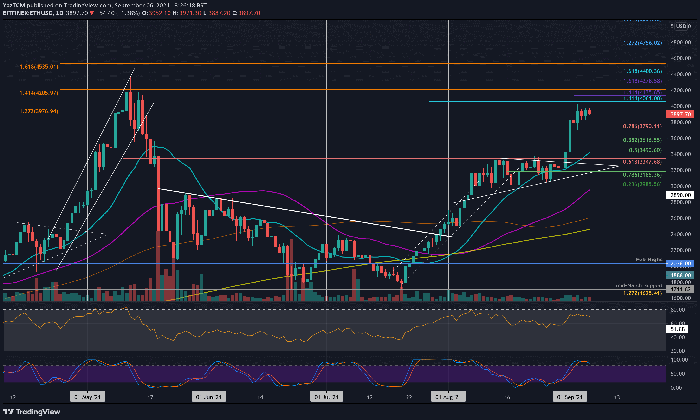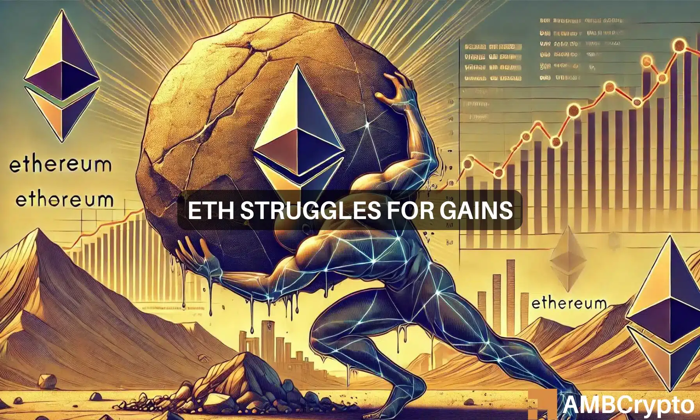The emergence of the BlackRock Bitcoin ETF, known as IBIT, is reshaping the landscape of institutional investment in cryptocurrencies. As one of the most significant players in the Bitcoin ETF market, IBIT now commands a staggering amount of Bitcoin holdings, drawing attention from investors worldwide. With its competitive edge and unparalleled liquidity, this ETF is reinforcing BlackRock’s dominance in the rapidly evolving arena of Bitcoin institutional investment. Analysts are increasingly focused on the implications of IBIT’s growth, as its ascent raises questions about competition within the Bitcoin ETF segment and the potential for market consolidation. As institutional interest surges, the BlackRock Bitcoin ETF stands out as a pivotal force, transforming the nature of Bitcoin exposure for investors everywhere.
In recent months, the conversation around investment funds has pivoted to include innovative financial products like the BlackRock Bitcoin exchange-traded fund (ETF) IBIT. This ETF has emerged as a preferred choice for financial institutions seeking Bitcoin exposure, outpacing its competitors significantly. As more capital flows into this vehicle, analysts are examining its role in the evolving Bitcoin ETF market and its impact on smaller funds. The considerable size of IBIT positions it as the go-to option for allocators, prompting discussions about the potential monopolistic trends in Bitcoin institutional investment. With this shift, the analysis surrounding Bitcoin ETFs underscores a critical moment in the cryptocurrency landscape, ripe for exploration.
The Rise of BlackRock’s Bitcoin ETF IBIT
BlackRock’s Bitcoin ETF, known as IBIT, is not just another investment fund; it signifies a significant shift in the landscape of institutional investments in Bitcoin. Since its launch, IBIT has quickly ascended to prominence, holding a staggering 636,000 BTC. This commanding position has led many to believe that IBIT will continue to capture significant market share, potentially sidelining smaller ETF issuers and reshaping the entire Bitcoin ETF market. The rapid accumulation of assets under IBIT highlights the growing confidence among institutional investors regarding Bitcoin as a viable asset class.
As of early 2025, IBIT holds more Bitcoin than its nearest competitors combined, drawing attention from major institutional players such as Mubadala Investment Company and Citadel Advisors. With these investments, it becomes evident that IBIT isn’t merely a trend—it represents a fundamental shift in how institutional investment approaches Bitcoin. This momentum may create a self-reinforcing cycle, where the influx of capital makes IBIT increasingly appealing, potentially leading to a scenario where it becomes the default choice for large-scale Bitcoin exposure.
Frequently Asked Questions
What is the significance of BlackRock’s IBIT Bitcoin ETF in the cryptocurrency market?
BlackRock’s IBIT Bitcoin ETF has emerged as a dominant force in the cryptocurrency market, holding over 636,000 BTC, which is significantly more than all other US spot Bitcoin ETFs combined. This indicates a growing institutional interest in Bitcoin through a trusted name, suggesting that IBIT could redefine how institutions gain exposure to Bitcoin.
How does BlackRock’s Bitcoin ETF (IBIT) compare to other Bitcoin ETFs?
BlackRock’s IBIT Bitcoin ETF significantly outperforms other Bitcoin ETFs in terms of asset accumulation and capital inflow. With over 636,000 BTC, it captures most of the market’s liquidity and attention, while smaller ETFs are struggling with declining relevance. This trend may lead to a consolidation in the Bitcoin ETF market.
Why are institutional investors favoring BlackRock’s Bitcoin ETF over others?
Institutional investors are favoring BlackRock’s Bitcoin ETF, IBIT, due to its size and perceived security. As the largest holder of Bitcoin among ETFs, it offers a high level of visibility and credibility, which attracts allocators looking for secure investment options in Bitcoin.
What impact is BlackRock’s Bitcoin ETF expected to have on smaller ETFs?
The rise of BlackRock’s Bitcoin ETF (IBIT) is expected to lead to closures or mergers among smaller Bitcoin ETFs due to declining liquidity and relevance. As IBIT captures most institutional investment, smaller funds may find it increasingly difficult to compete and retain investor interest.
Is BlackRock’s IBIT Bitcoin ETF setting a trend for future Bitcoin institutional investments?
Yes, BlackRock’s IBIT Bitcoin ETF appears to be setting a trend for future Bitcoin institutional investments. Its rapid growth and dominance have led to concerns about a potential monopoly in the Bitcoin ETF market, suggesting that institutional trust may become synonymous with BlackRock.
What are the potential risks of relying heavily on BlackRock’s Bitcoin ETF for Bitcoin exposure?
Relying heavily on BlackRock’s Bitcoin ETF could pose risks such as market concentration and reduced competition. If IBIT continues to dominate the Bitcoin ETF landscape, it may lead to systemic risks where investors have limited options and face potential vulnerabilities associated with single-provider dependence.
How does the current performance of BlackRock’s Bitcoin ETF affect Bitcoin’s price trends?
The current performance of BlackRock’s Bitcoin ETF (IBIT), which is capturing significant capital inflows, can positively influence Bitcoin’s price trends. As institutional capital flows into IBIT, it may drive increased demand for Bitcoin, potentially leading to price appreciation.
What should potential investors consider before investing in BlackRock’s Bitcoin ETF?
Potential investors should consider factors such as market trends, the ETF’s performance compared to others, fees, and their overall risk tolerance. While BlackRock’s Bitcoin ETF appears robust, understanding the landscape, including the potential for market consolidation, is crucial for informed decision-making.
| Key Point | Details |
|---|---|
| IBIT Dominance | BlackRock’s IBIT has over 636,000 BTC, more than double all other US spot Bitcoin ETFs combined. |
| Institutional Interest | Heavyweight investors like Mubadala and Citadel Advisors are significantly increasing their stakes in IBIT. |
| Market Shift | Smaller ETF issuers may face closures or mergers due to declining liquidity and relevance. |
| Potential Monopoly | The rise of IBIT raises concerns about a possible monopoly in Bitcoin ETF exposure. |
| Long-term Market Structure | IBIT’s dominance could redefine how institutions engage with Bitcoin, affecting market diversity. |
Summary
The BlackRock Bitcoin ETF, known as IBIT, has emerged as a formidable player in the cryptocurrency investment landscape. With its substantial holdings and growing institutional support, it raises concerns about the concentration of Bitcoin investment under a single entity. As IBIT continues to draw significant capital from top institutional investors, it not only challenges smaller ETFs but also suggests a potential shift toward a Bitcoin ETF monopoly. The implications of this development for the future of Bitcoin trading and institutional trust in the market cannot be understated.
The emergence of the BlackRock Bitcoin ETF, known as IBIT, is reshaping the landscape of cryptocurrency investment, capturing the spotlight as it attracts substantial institutional interest. As more investors seek exposure to Bitcoin through regulated vehicles, IBIT’s dominance is becoming increasingly evident, with its holdings vastly outpacing other ETFs in the market. This shift not only underscores the growing appetite for Bitcoin institutional investment but also prompts a deeper analysis of the Bitcoin ETF market itself. With BlackRock at the helm, the implications of its rapid ascendance raise concerns about potential monopolization within the sector. Monitoring this trend is crucial, as it indicates how institutional players might prioritize one asset over others in a rapidly evolving financial ecosystem.
The rise of BlackRock’s Bitcoin ETF, referred to as IBIT, signifies a major turning point for digital asset investments, especially among institutional players. As traditional finance entities explore cryptocurrency avenues, this particular ETF stands out as a leading player, reshaping investor perceptions and strategies. The dynamics in the Bitcoin ETF marketplace are shifting, with heightened scrutiny on how one fund could dominate the landscape and influence market behavior. With the popularity of Bitcoin exposure surging, the significant influx of capital into IBIT prompts a critical examination of investment patterns and the future of alternative funds. Such developments highlight the necessity for comprehensive Bitcoin ETF analysis to understand the implications of market consolidation.














